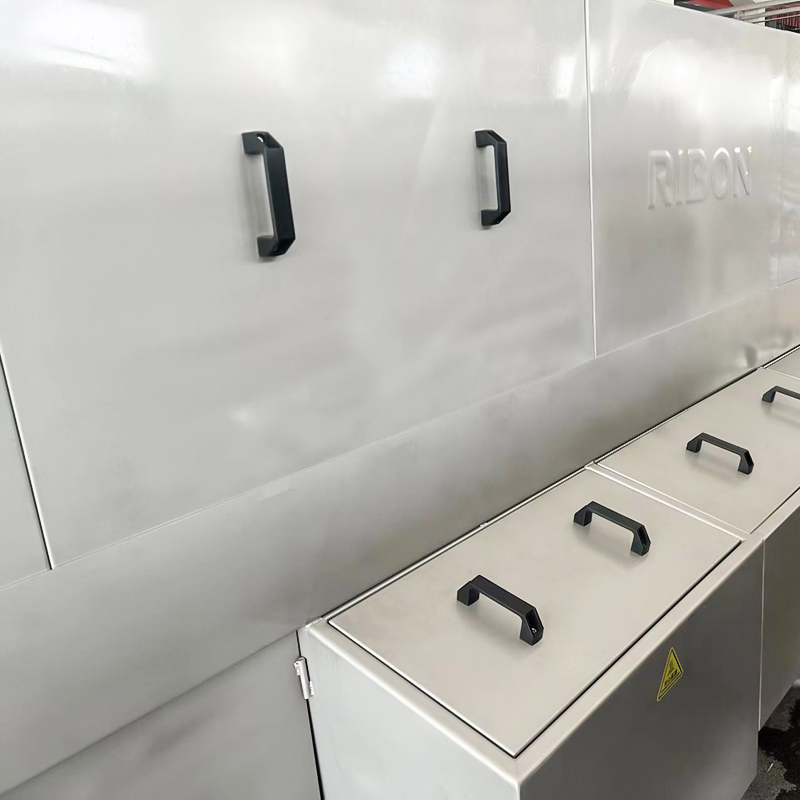Factors to Consider When Choosing a Crate Washer
Capacity Requirements: The first factor to consider is the volume of crates that need to be washed daily. For a small operation, a batch washer might suffice, but larger businesses often require continuous or tunnel washers that can handle a constant flow of crates. Estimating your capacity needs helps prevent bottlenecks and ensures crates are always ready for use.
Type of Contaminants: Different industries deal with varying types of contaminants. In the food industry, residue and organic matter are common, while in logistics, crates may gather dust and dirt. Choosing a washer with the right cleaning capabilities and water pressure is essential to remove specific contaminants effectively.
Automation Level: Automation in crate washers can range from semi-automatic systems to fully automated solutions. A fully automated crate washer can integrate seamlessly into production lines, while semi-automated options may be suitable for smaller operations where full automation is unnecessary. High levels of automation help reduce labor costs and enhance consistency.
Temperature and Sanitization Options: In industries like food processing, crates require thorough sanitization to meet safety standards. Many crate washers offer adjustable temperature settings and can operate at high temperatures to kill bacteria and pathogens. For industries where hygiene is critical, this feature is a must-have.

Types of Crate Washers and Their Advantages
Batch Crate Washers: Ideal for smaller operations, batch washers allow companies to clean multiple crates simultaneously. They are easy to use, require less space, and are often more affordable for businesses with low to moderate cleaning requirements.
Continuous Crate Washers: These washers provide a steady output of clean crates, making them suitable for larger industries with high crate turnover. Continuous washers are generally more efficient and can process crates in a streamlined manner, increasing productivity.
Tunnel Crate Washers: Tunnel washers are highly automated systems that use conveyor belts to move crates through various cleaning stages. Ideal for large-scale operations, they offer high-speed, high-volume cleaning and are particularly popular in the food, beverage, and pharmaceutical industries.
Key Features to Look For
Adjustable Spray Pressure: A washer with customizable spray pressure ensures that crates are thoroughly cleaned without damage, especially for crates that may have delicate surfaces.
Detergent Compatibility: Check if the washer can integrate with various types of detergents and sanitizing solutions. This is particularly important for industries with strict hygiene requirements.
Energy and Water Efficiency: Many modern crate washers are designed to use minimal water and energy, making them environmentally friendly and cost-effective. Look for models that recycle water and use energy-efficient technologies.
Maintenance and Durability
Regular maintenance is crucial for keeping crate washers running smoothly. Many crate washers come with self-cleaning mechanisms or easy-to-remove parts for maintenance, reducing downtime. Additionally, choosing a durable machine made of corrosion-resistant materials, such as stainless steel, will extend the washer’s lifespan and reduce repair costs.
Benefits of Investing in a Quality Crate Washer
Operational Efficiency: With a high-quality crate washer, businesses can reduce the time and labor needed for manual cleaning, enhancing productivity.
Improved Hygiene Standards: By ensuring crates are consistently clean, businesses can adhere to health and safety standards, especially in industries where hygiene is crucial.
Cost Savings: An efficient crate washer reduces water, detergent, and energy consumption, saving operational costs over time. It also helps extend the life of crates, reducing the need for frequent replacements.





 English
English русский
русский Español
Español عربى
عربى










